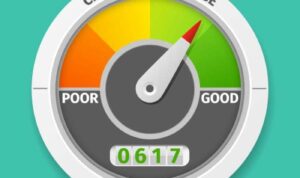Personal Finance Tips: Whether you’re a high schooler saving up for a new ride or an adult planning for retirement, mastering your money is key. Let’s dive into some expert tips to help you navigate the world of personal finance like a pro.
Importance of Personal Finance: Personal Finance Tips
Personal finance is crucial for individuals as it involves managing money, budgeting, saving, investing, and planning for the future. Good personal finance habits can lead to financial security by ensuring that individuals have enough money to cover expenses, emergencies, and achieve their financial goals. On the other hand, poor financial management can have a significant impact on one’s life, leading to debt, stress, and limited opportunities. By effectively managing personal finances, individuals can achieve long-term goals such as buying a home, starting a business, saving for retirement, or pursuing higher education.
Financial Security
Maintaining good personal finance habits is essential for achieving financial security. This includes creating a budget, saving regularly, reducing debt, and investing wisely. Financial security provides individuals with peace of mind, knowing that they can cover expenses, emergencies, and unexpected events without relying on credit or loans. By building a strong financial foundation, individuals can weather financial storms and work towards a stable and secure future.
Long-Term Goals
Personal finance plays a crucial role in helping individuals achieve long-term goals. By setting financial goals, creating a plan, and making informed financial decisions, individuals can work towards milestones such as buying a house, saving for children’s education, starting a business, or retiring comfortably. Effective personal finance management enables individuals to stay focused, motivated, and disciplined in pursuing their aspirations, ultimately turning dreams into reality.
Budgeting Tips

Creating a budget is essential for managing your finances effectively. It helps you track your spending, prioritize your expenses, and work towards your financial goals.
Key Components of a Successful Budget
- Income: Determine your total monthly income from all sources.
- Expenses: List all your monthly expenses, including fixed costs like rent and variable expenses like groceries.
- Savings: Allocate a portion of your income towards savings and investments.
- Emergency Fund: Set aside money for unexpected expenses to avoid going into debt.
Different Budgeting Methods
- Zero-Based Budgeting: Assign every dollar of your income to a specific expense, savings, or debt repayment, ensuring that your income minus expenses equals zero.
- 50/30/20 Rule: Allocate 50% of your income to needs, 30% to wants, and 20% to savings and debt repayment.
Tips on Tracking Expenses Effectively
- Use budgeting apps or spreadsheets to monitor your spending in real time.
- Review your expenses regularly to identify areas where you can cut back.
- Categorize your expenses to understand where your money is going.
- Avoid impulse purchases and stick to your budget to achieve your financial goals.
Saving and Investing
When it comes to personal finance, understanding the difference between saving and investing is crucial. Saving involves setting aside money for short-term goals or emergencies, usually in a low-risk account like a savings account. On the other hand, investing is putting money into assets like stocks, bonds, or real estate with the goal of generating returns over the long term.
Importance of Emergency Funds, Personal Finance Tips
Building an emergency fund is essential to protect yourself from unexpected expenses or a sudden loss of income. Aim to save at least 3 to 6 months’ worth of living expenses in a separate account that is easily accessible in case of emergencies.
Tips for Starting to Invest for Beginners
- Start with what you can afford: Begin with small amounts to get comfortable with investing.
- Understand your risk tolerance: Determine how much risk you are willing to take based on your financial goals.
- Diversify your investments: Spread your money across different asset classes to reduce risk.
- Consider a retirement account: Take advantage of employer-sponsored retirement plans like a 401(k) or start an individual retirement account (IRA).
Strategies to Make Saving and Investing a Habit
- Automate your savings: Set up automatic transfers from your checking account to your savings or investment accounts.
- Track your progress: Regularly monitor your savings and investment accounts to stay motivated and make adjustments as needed.
- Set specific goals: Establish clear financial goals and create a plan to achieve them through saving and investing.
- Educate yourself: Continuously learn about personal finance and investment strategies to make informed decisions.
Managing Debt
Debt can have a significant impact on personal finance, affecting credit scores, financial stability, and overall well-being. It’s crucial to have a plan in place to effectively manage and pay off debt to avoid falling into a cycle of financial struggle.
Impact of Debt
Debt can lead to stress, limited financial opportunities, and high-interest payments that can drain your income. It can also affect your ability to save for the future and reach your financial goals.
Strategies for Paying Off Debt
- Create a budget to prioritize debt payments.
- Consider debt consolidation to lower interest rates.
- Focus on paying off high-interest debt first.
- Explore options like debt snowball or debt avalanche methods.
Good Debt vs. Bad Debt
- Good debt is used to invest in assets that can increase in value, such as a mortgage or student loans.
- Bad debt is high-interest debt used for non-essential items that depreciate in value, like credit card debt from shopping sprees.
Avoiding Debt Traps and Responsible Debt Management
- Avoid overspending and impulse purchases.
- Build an emergency fund to cover unexpected expenses.
- Negotiate with creditors for lower interest rates or payment plans if needed.
- Seek financial education and guidance to make informed decisions.
Financial Goals Setting

Setting financial goals is crucial in achieving financial success and stability. By establishing clear objectives, individuals can create a roadmap to guide their financial decisions and actions. Here we discuss the importance of setting financial goals, examples of short-term, medium-term, and long-term financial goals, tips on setting SMART financial goals, and the significance of regularly reviewing and adjusting these goals.
Importance of Setting Financial Goals
- Setting financial goals provides direction and purpose to your financial decisions.
- It helps you prioritize your spending and saving, ensuring that you are working towards your desired outcomes.
- Financial goals act as motivation to stay disciplined in managing your finances and making smart choices.
- They serve as benchmarks to track your progress and celebrate your achievements along the way.
Examples of Financial Goals
Financial goals can vary in duration and complexity. Here are examples of short-term, medium-term, and long-term financial goals:
- Short-term: Building an emergency fund, paying off credit card debt, saving for a vacation.
- Medium-term: Buying a car, saving for a down payment on a house, starting a retirement account.
- Long-term: Retiring at a certain age, funding a child’s education, achieving financial independence.
Setting SMART Financial Goals
When setting financial goals, it’s important to make them SMART: Specific, Measurable, Achievable, Relevant, and Time-bound.
For example, instead of saying “I want to save money,” a SMART goal would be “I will save $5,000 for a down payment on a house within the next 12 months by setting aside $400 each month.”
Reviewing and Adjusting Financial Goals Regularly
- Regularly reviewing your financial goals allows you to track your progress and make any necessary adjustments.
- Life circumstances and priorities may change, requiring you to modify your goals to stay aligned with your current situation.
- By reviewing and adjusting your financial goals, you can ensure that you remain motivated and focused on achieving financial success.





